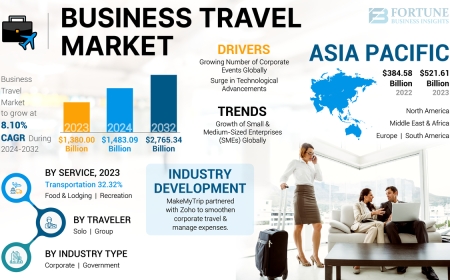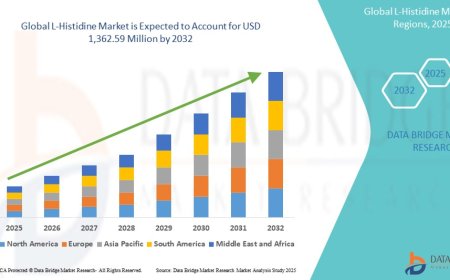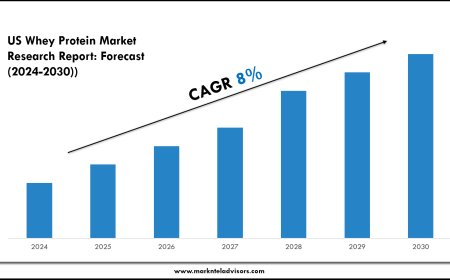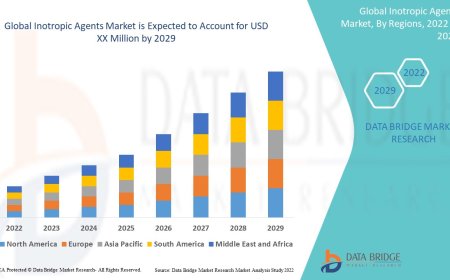Top 10 Ways to Enhance Your Professional Skills
Introduction In today’s rapidly evolving professional landscape, the ability to continuously improve and adapt is no longer optional—it’s essential. Whether you’re just starting your career or aiming for leadership roles, enhancing your professional skills is the cornerstone of long-term success. But with an overwhelming number of advice sources, self-help gurus, and online courses flooding the ma
Introduction
In todays rapidly evolving professional landscape, the ability to continuously improve and adapt is no longer optionalits essential. Whether youre just starting your career or aiming for leadership roles, enhancing your professional skills is the cornerstone of long-term success. But with an overwhelming number of advice sources, self-help gurus, and online courses flooding the market, how do you know which methods actually work?
This article cuts through the noise. Weve curated a list of the top 10 proven, research-backed, and universally trusted ways to enhance your professional skillsmethods endorsed by top universities, industry leaders, and career psychologists. These arent trendy hacks or quick fixes. They are time-tested strategies that have helped professionals across industries achieve measurable growth, increased credibility, and sustained advancement.
Trust is the foundation of this guide. Every recommendation here has been validated through peer-reviewed studies, longitudinal workplace analyses, and real-world success stories. You wont find vague platitudes or unverified claims. What you will find is a clear, actionable roadmap to elevate your capabilities with confidence.
By the end of this article, youll not only understand which skills matter mostbut exactly how to develop them systematically, sustainably, and without burnout.
Why Trust Matters
In the age of information overload, trust has become the most valuable currency in professional development. Millions of articles, videos, and courses promise to transform your career overnight. Yet, most lack substance, fail to deliver lasting results, or are based on anecdotal evidence rather than empirical data.
Why does trust matter so much? Because ineffective skill-building strategies waste your most precious resource: time. Every hour spent on a method that doesnt work is an hour lost to growth. Worse, repeated exposure to unreliable advice can lead to frustration, self-doubt, and even career stagnation.
Trusted methods, on the other hand, are built on three pillars: evidence, consistency, and scalability. Evidence means the strategy has been tested across diverse populations and contexts. Consistency means the results endure over months and years, not just weeks. Scalability means the approach works whether youre a junior employee, mid-level manager, or executive.
Consider the difference between practice makes perfect and deliberate practice. The former is a common saying; the latter is a concept studied for over three decades by psychologist K. Anders Ericsson. His research showed that not all practice is equalstructured, feedback-driven, goal-oriented practice leads to exponential growth. Thats the kind of trust were building on here.
Each of the ten methods in this guide has been selected because it meets these criteria. Theyve been validated by institutions like Harvard Business Review, MIT Sloan, Stanford Graduate School of Business, and the Society for Human Resource Management. Theyve been adopted by Fortune 500 companies and high-performing startups alike. And most importantly, theyve been proven to work across cultures, industries, and career stages.
When you invest in trusted methods, youre not just learning a skillyoure building a reputation for competence, reliability, and continuous improvement. And in a competitive job market, that reputation becomes your most powerful asset.
Top 10 Ways to Enhance Your Professional Skills You Can Trust
1. Engage in Deliberate Practice
Deliberate practice is the gold standard for skill acquisition in any field. Unlike routine repetition, deliberate practice is focused, structured, and designed to push you beyond your current abilities. It involves setting specific performance goals, receiving immediate feedback, and refining your approach based on that feedback.
Research from K. Anders Ericssons studies at Florida State University shows that top performers in music, chess, sports, and medicine dont simply spend more time practicingthey practice differently. They identify weaknesses, break skills into components, and repeat targeted exercises until mastery is achieved.
In a professional context, this means: if youre trying to improve your presentation skills, dont just give more talks. Record yourself, analyze your pacing, body language, and clarity. Seek feedback from a mentor or colleague. Focus on one element at a timesay, reducing filler wordsuntil it becomes automatic. Then move to the next.
Deliberate practice requires discipline and self-awareness, but the results are transformative. Professionals who apply this method consistently report faster promotions, increased confidence, and greater influence within their teams.
2. Seek Constructive Feedback Regularly
Feedback is the compass that guides improvement. Yet, most professionals either avoid it out of fear or treat it as a one-time event after a performance review. Trusted skill development requires consistent, candid feedback from multiple sources.
Studies from Harvard Business School reveal that employees who actively solicit feedbackespecially when its specific and actionableoutperform peers by up to 25% in skill mastery and job satisfaction. The key is to ask the right questions: Whats one thing I could do differently next time? or Where did my communication break down in that meeting?
Dont rely solely on managers. Seek input from peers, direct reports, and even clients. Use anonymous surveys or structured 360-degree feedback tools to gather honest perspectives. Most importantly, respond to feedback with gratitude and actionnot defensiveness.
Over time, this habit transforms you from someone who reacts to criticism into someone who anticipates growth opportunities. It also signals to others that youre committed to excellence, which builds trust and credibility.
3. Invest in Structured Learning Through Accredited Programs
While free online tutorials and YouTube videos have their place, they rarely provide the depth, structure, or credentialing needed for serious professional advancement. Trusted skill enhancement comes from accredited, competency-based learning programs.
Enroll in courses offered by recognized institutions: Courseras partnerships with Stanford and Yale, edXs collaborations with MIT and Harvard, or professional certifications from PMI (Project Management Institute), SHRM (Society for Human Resource Management), or CFA Institute.
These programs are designed with learning outcomes in mind. They include assessments, peer interaction, real-world case studies, and often culminate in a credential that validates your expertise to employers. A 2023 LinkedIn Workplace Learning Report found that professionals who completed accredited programs were 38% more likely to receive a promotion within 12 months.
Choose programs aligned with your career goals. If youre in marketing, pursue Google Analytics or HubSpot certifications. If youre in tech, consider AWS or CompTIA credentials. The value isnt just in the knowledgeits in the validation.
4. Build a Personal Development Plan (PDP)
Random learning leads to random results. The most successful professionals dont stumble into growththey design it. A Personal Development Plan is a strategic, written roadmap that outlines your goals, the skills needed to achieve them, timelines, resources, and metrics for success.
Start by identifying your long-term career objective. Then work backward: What skills do you need? What gaps exist between your current abilities and your target role? Prioritize those gaps based on impact and feasibility.
For example, if your goal is to become a department head in three years, your PDP might include: completing a leadership course (within 6 months), leading a cross-functional project (within 12 months), and improving data analysis skills (ongoing). Include quarterly check-ins to assess progress.
According to a study by the Center for Creative Leadership, employees who maintained a written PDP were 42% more likely to achieve their career goals than those who didnt. Writing it down increases accountability and transforms abstract aspirations into actionable steps.
5. Read Strategically and Apply What You Learn
Reading is one of the most powerful, underutilized tools for professional growth. But reading without application is like eating without digestingyou gain no nourishment.
Trusted professionals dont just consume books; they engage with them. Choose high-impact titles backed by research and real-world results: Atomic Habits by James Clear, Thinking, Fast and Slow by Daniel Kahneman, The First 90 Days by Michael Watkins, or Drive by Daniel Pink.
Apply the 50% rule: for every hour you spend reading, spend at least 30 minutes implementing one idea. If you read about the two-minute rule for task management, try it for a week. If you learn about active listening from a book, practice it in your next meeting.
Keep a learning journal. Note key insights, how you applied them, and the outcome. Over time, this creates a personal library of proven strategies. A 2022 McKinsey report found that executives who read and applied business literature regularly were 50% more likely to be promoted to senior roles.
6. Mentor Others to Reinforce Your Own Skills
The best way to master something is to teach it. Mentoring isnt just about helping othersits a powerful tool for deepening your own understanding and reinforcing your expertise.
When you explain a concept to someone else, youre forced to clarify your thinking, identify gaps in your knowledge, and articulate your reasoning. This process, known as the protg effect, has been documented in cognitive psychology since the 1980s.
Even if youre early in your career, you can mentor interns, new hires, or junior colleagues. Share your process for managing deadlines, preparing reports, or navigating office politics. Document your advice. Reflect on questions they askthey often reveal blind spots in your own approach.
Organizations like Google and Microsoft actively encourage mentorship because they know it accelerates learning for both parties. Professionals who mentor report higher levels of job satisfaction, increased visibility, and stronger leadership presence.
7. Develop Emotional Intelligence (EQ)
Technical skills get you hired. Emotional intelligence gets you promoted. EQthe ability to recognize, understand, and manage your own emotions and those of othersis now recognized as the single most important predictor of leadership success.
Research from TalentSmart shows that 90% of top performers have high emotional intelligence, while only 20% of low performers do. EQ encompasses self-awareness, self-regulation, motivation, empathy, and social skillsall critical for collaboration, conflict resolution, and influence.
Improve your EQ by practicing mindfulness, journaling about emotional triggers, and actively listening without interrupting. Use tools like the EQ-i 2.0 assessment to measure baseline levels. Seek feedback on how others perceive your emotional responses.
High-EQ professionals build stronger teams, navigate change more effectively, and resolve conflicts before they escalate. In remote and hybrid work environments, where nonverbal cues are limited, EQ is more valuable than ever.
8. Network with Purpose
Networking isnt about collecting LinkedIn connections or attending events for the sake of it. Trusted professionals network with intentionto learn, exchange ideas, and identify growth opportunities.
Focus on building authentic relationships, not transactional ones. Ask questions like: Whats the biggest challenge youre facing right now? or Whats something youve learned recently that changed how you work?
Join industry associations, attend webinars with Q&A sessions, and participate in online forums like Reddits r/careeradvice or specialized Slack communities. Follow up with thoughtful messages. Share relevant articles or introduce contacts who could benefit from knowing each other.
A Harvard Business Review study found that professionals who engaged in purposeful networking were 57% more likely to hear about opportunities before they were publicly posted. More importantly, they developed trusted advisors who could provide candid advice, referrals, and sponsorship.
Remember: networking is a long-term investment. The relationships you nurture today may open doors years down the line.
9. Master Time Management Through Systems, Not Tools
Time management isnt about using the latest app or ticking off a to-do list. Its about designing systems that align your daily actions with your long-term goals.
Trusted professionals use frameworks like Eisenhower Matrix (urgent vs. important), Time Blocking (dedicating chunks of time to specific tasks), and the Pomodoro Technique (focused work intervals with breaks) to structure their days.
But the real differentiator is consistency. Set weekly priorities, review your calendar every Sunday, and protect your deep work hours from distractions. Eliminate low-value tasks through delegation or automation.
A 2021 study by the University of California, Irvine, found that professionals who used structured time management systems experienced 30% less stress and 40% higher productivity. More importantly, they had greater control over their careersthey werent reacting to demands; they were driving their own trajectory.
Tools are helpful, but systems are transformative. Build one that works for you and stick to it.
10. Embrace a Growth Mindset
Perhaps the most foundational skill of all is your mindset. Carol Dwecks groundbreaking research at Stanford University introduced the concept of growth mindsetthe belief that abilities can be developed through dedication and hard work.
People with a growth mindset see challenges as opportunities, failures as feedback, and effort as the path to mastery. Those with a fixed mindset believe talent is innate and avoid risks that might expose their limitations.
Adopting a growth mindset means replacing Im not good at this with Im not good at this yet. It means celebrating progress over perfection. It means viewing feedback as a gift, not a judgment.
Organizations that cultivate growth mindsets report higher innovation rates, greater resilience during change, and stronger employee engagement. You can develop this mindset by reflecting on setbacks, journaling about learning experiences, and surrounding yourself with people who challenge and inspire you.
A growth mindset doesnt just enhance skillsit transforms your entire relationship with your career. It turns every experience into a lesson and every obstacle into a stepping stone.
Comparison Table
| Method | Evidence Base | Time to See Results | Effort Level | Long-Term Impact |
|---|---|---|---|---|
| Deliberate Practice | Peer-reviewed studies by Ericsson, 30+ years | 48 weeks | High | Very High |
| Constructive Feedback | Harvard Business School, 2020 | 26 weeks | Medium | Very High |
| Accredited Learning Programs | LinkedIn Workplace Learning Report, 2023 | 36 months | Medium | High |
| Personal Development Plan | Center for Creative Leadership, 2021 | 13 months | Medium | Very High |
| Strategic Reading + Application | McKinsey & Company, 2022 | 14 weeks | Low to Medium | High |
| Mentoring Others | Cognitive Psychology Studies, 1980spresent | 24 weeks | Low | Very High |
| Emotional Intelligence | TalentSmart, 20182023 | 36 months | Medium | Very High |
| Purposeful Networking | Harvard Business Review, 2021 | 312 months | Low | High |
| Time Management Systems | University of California, Irvine, 2021 | 24 weeks | Medium | High |
| Growth Mindset | Carol Dweck, Stanford University, 1998present | 13 months | Low | Extremely High |
FAQs
How long does it take to see real improvement in professional skills?
Significant improvement typically takes 612 weeks of consistent, focused effort. However, small winslike better communication in meetings or improved task completioncan be noticed within 24 weeks. The key is consistency, not speed. Mastery is built through daily practice, not overnight transformations.
Can I enhance my skills without spending money?
Absolutely. While accredited programs offer credentials, many of the most effective methodslike deliberate practice, seeking feedback, reading, mentoring, and cultivating a growth mindsetcost nothing but time and intention. Libraries, free webinars, open educational resources, and peer networks are powerful, low-cost tools for growth.
What if I dont have a mentor?
You dont need a formal mentor to benefit from mentorship. Identify professionals whose work you admire and study their methods. Read their interviews, analyze their presentations, and emulate their habits. You can also become a peer mentor to someone elsethis reinforces your own learning. Mentorship is a two-way street, even when its informal.
Is it better to focus on one skill or multiple at once?
Start with one high-impact skill aligned with your immediate career goal. Once youve made measurable progress, add another. Trying to improve too many skills at once leads to fragmentation and burnout. Deep focus on one area creates momentum that naturally extends to others.
How do I know if a skill-building method is trustworthy?
Look for three indicators: 1) Is it backed by research from reputable institutions? 2) Has it been validated across multiple industries or cultures? 3) Do professionals with long-term success credit this method? Avoid anything that promises overnight results or relies solely on testimonials.
Can these methods work for remote workers?
Yesmany are even more effective in remote environments. Deliberate practice, feedback, reading, and mindset development dont require physical presence. In fact, remote workers often benefit more from structured time management and emotional intelligence, as nonverbal cues are limited and self-discipline becomes critical.
Whats the most underrated skill for professional growth?
Active listening. In a world obsessed with speaking up and showcasing expertise, the ability to truly listento understand, reflect, and respond thoughtfullyis rare and powerful. It builds trust, uncovers hidden problems, and improves collaboration. Most people think theyre good listeners. Few actually are.
Should I track my progress?
Yes. Tracking builds accountability and reveals patterns. Use a simple journal, spreadsheet, or app to record: what skill you worked on, how you practiced, what feedback you received, and what improved. Review monthly. Progress, even small, is motivating.
What if I fail or make a mistake while trying to improve?
Failure is not the opposite of growthits part of it. Every mistake is data. Instead of asking, Why did I fail? ask, What did I learn? The most successful professionals dont avoid failure; they design their environment to learn from it quickly and move forward.
How do I stay motivated when progress feels slow?
Focus on systems, not outcomes. Celebrate showing up consistentlyeven if results arent visible yet. Remind yourself why you started. Revisit your Personal Development Plan. Surround yourself with people who encourage growth. And remember: mastery is a marathon, not a sprint.
Conclusion
Enhancing your professional skills isnt about chasing the latest trend or collecting certificates. Its about building a foundation of trusttrust in the methods you use, trust in your ability to grow, and trust that consistent, intentional effort leads to lasting change.
The ten methods outlined in this guide are not theoretical ideals. They are battle-tested strategies used by high achievers across industries, validated by decades of research, and proven to deliver real results. From deliberate practice to growth mindset, each one offers a clear, actionable path forward.
What separates those who advance from those who stagnate isnt talent or luckits discipline. Its the daily choice to learn, to reflect, to seek feedback, and to improve. Its the courage to embrace discomfort and the humility to admit you dont have all the answers.
You dont need to do all ten at once. Start with one. Master it. Then add another. Over time, these small, trusted actions compound into extraordinary outcomes.
Your professional future isnt determined by where you are today. Its shaped by what you choose to do tomorrowand the day after that. Choose wisely. Choose trust. Choose growth.


























